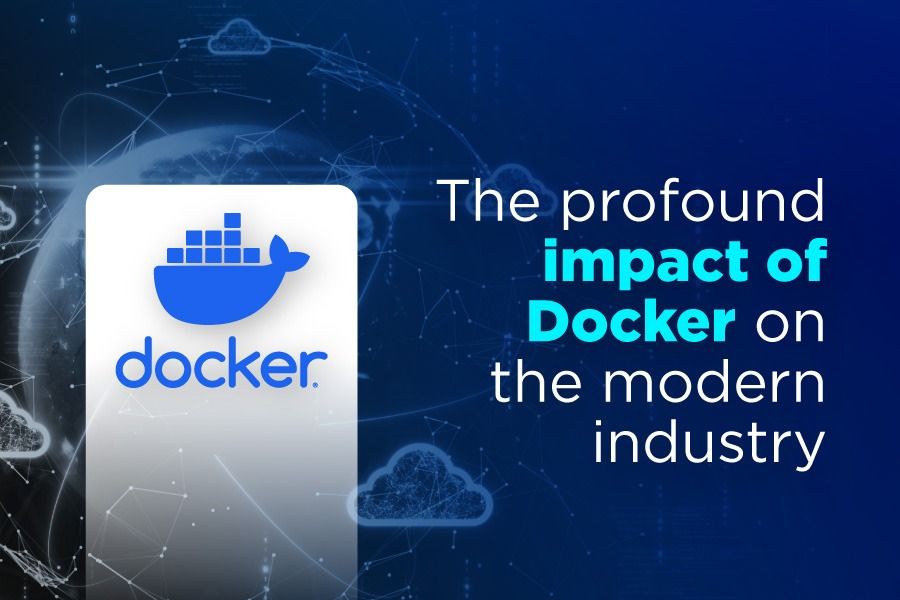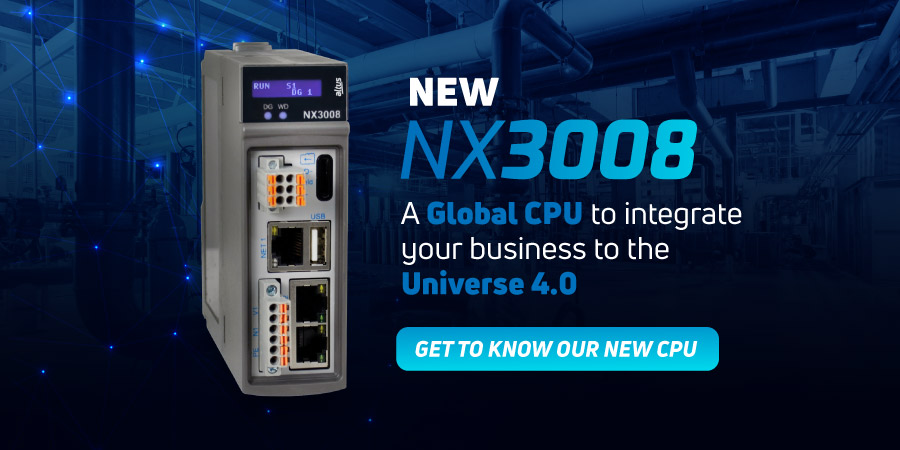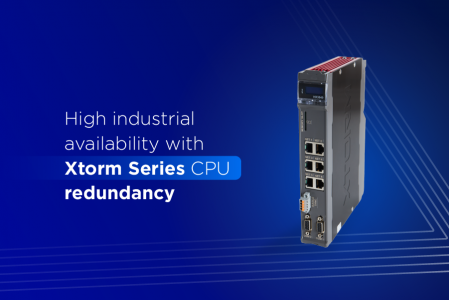
The profound impact of Docker on the modern industry
Technology plays a crucial role in industry today, shaping the way companies operate and helping them adapt to an ever-evolving world. One of these new kinds of technology that has made a huge impact is Docker. If you`re not already familiar with Docker, don`t worry, as in this article we`ll go into detail about the history of this incredibly powerful tool and explain how it`s changing the way the industry operates.
What is Docker and why is it important?
Imagine having the ability to encapsulate any application in a single package that can be easily moved, deployed and run in any environment, consistently and reliably. This is what Docker offers. The resource is a lightweight and efficient virtualization platform that simplifies the development, deployment and maintenance of software and applications.
The creation of Docker represents a paradigm shift in the industry. The feature allows companies from different segments to save resources and avoid compatibility issues in software environments. Furthermore, the platform allows the development team to focus solely on creating software, while the operations squad is responsible for implementing these applications.
What started as an open source project in 2013 has become an essential tool for the digitalized world and quickly won over the developer community. The vision of simplifying application deployment and improving operational efficiency, proposed by Solomon Hykes, founder of Docker, has come to fruition as the platform becomes essential in various industries, from startups to giant corporations.
Docker advantages and features
Docker offers a series of advantages and features that make it a rich tool for companies of all sizes. Let`s explore the main reasons why Docker is gaining prominence in the modern industry:
1. Application and dependency isolation
The ability to create containers, which are separate environments for software and libraries, is one of Docker`s most notable features. This means you can compress an application and all its components into one container. This approach ensures that each application has its own unique environment, eliminating dependency conflicts and facilitating launch.
2. Resource efficiency
Containers in Docker environments are very lightweight and feature-rich. They share the underlying operating system kernel, which allows multiple containers to run on a single machine without conventional virtualization environments tying up too many resources. As a result, infrastructure resources are used more effectively.
3. Portability and consistency
When using Docker, you can embed an application and its code in a container, which can run in any environment that supports the platform, whether in the cloud, in a local data center, or on your laptop. This ensures that the development environment and the production environment are identical, which avoids unpleasant surprises caused by differences between them.
4. Ease of scalability and orchestration
Docker provides powerful tools to easily scale applications. Docker Swarm and Kubernetes make it easy to orchestrate and manage containers across server clusters, allowing your code to automatically scale based on demand.
5. Integration with automation and CI/CD tools
Docker is easily integrated with automation tools and continuous integration/continuous delivery (CI/CD) pipelines. This facilitates automated application deployment, quality testing, and continuous updates, saving time and reducing errors.
Docker has the power to revolutionize the way companies develop, implement and manage software and systems. As we continue our exploration, we`ll look at how Docker works behind the scenes and how it`s being applied in the industry today.
How Docker works
To understand how Docker works, it is important to know the architecture and the main components that make this technology work:
Architecture
Docker`s architecture is based on a client-server model, made up of several interconnected components:
Client: It is the interface through which users interact with the platform. Docker commands such as docker pull, docker run, and docker build are executed by the client.
Daemon: It is the background service that manages Docker operations. It is responsible for creating, running and monitoring containers. It communicates with the customer and performs the requested actions.
Images: Images are like templates for creating containers. They contain a file system plus metadata that describes how to run the container. Stored in a repository, they can be shared and reused.
Containers: Containers are instances, isolated environments, that run the stored images. Each container is built from an image and can be started, paused, stopped, and removed independently.
Container creation and execution process
To get started, you need to select an image appropriate for the application you want to run. Using the docker run command, Docker creates a container from this image and allocates the necessary resources to start the operation. The application is then run inside the container, taking advantage of the isolated environment provided by Docker.
You can monitor the container`s execution, view logs, and interact with it as needed. Containers can run in the background or in interactive mode, depending on your needs. Data created or modified while the container is running can be allocated persistently so that it is not lost when the container is removed.
Docker uses underlying technologies such as namespaces and cgroups to create isolated environments and control resource usage. This combination of features and functionality makes Docker a powerful tool for developing and deploying applications, ensuring consistency and efficiency across environments.
The uses of Docker in the Industry
Docker has found a wide range of applications in industry, driving innovation and efficiency across diverse sectors. Next, let`s explore how Docker is being used in different industrial scenarios:
Agile development and fast delivery
Development teams can package applications into containers that include all necessary libraries, ensuring that development, test, and production environments are consistent and isolated, speeding up the development cycle and enabling updates to be quickly delivered to customers.
Testing and quality environments
Containers can be easily provisioned to simulate production scenarios, ensuring applications are comprehensively tested before being deployed. This helps identify and fix problems early, improving software quality and simplifying the development process.
Scenario simulation
Docker is used to create highly controlled and replicable simulation environments. For example, a food factory can use containers to simulate different temperature and humidity conditions on its production lines, ensuring product safety and quality under all circumstances.
Simplified maintenance
Updates required for a system can be performed by creating new container versions and deploying them without disrupting running services. This reduces downtime and the complexity of maintaining critical applications.
Local processing with Edge Computing
Edge computing scenarios are one of the most exciting applications of Docker on the market. Instead of transferring data to the cloud and processing it in distant data centers, edge computing involves processing and running applications close to the data source. The use of Docker allows the packaging of software and services in lightweight containers and their integration into programmable controllers, industrial sensors and autonomous robots. This offers reduced latency, greater security and greater efficiency in real-time data collection and analysis, making it ideal for critical applications in industry
As Docker continues to evolve and adapt to the changing demands of the industry, its potential to transform the way companies operate only increases.
Recommended reading: What is Edge Computing and how it reduces information delay?
Preparing for the future with Docker
As we look to the future, it is clear that Docker will continue to play a crucial role in the digital transformation of the industry. Here are some important considerations for companies looking to make the most of this technology:
1. Adoption of container orchestration
To effectively manage and scale applications, Docker is often used in conjunction with container orchestrators such as Kubernetes. As companies look to deploy applications at scale and maintain continuous availability, adopting container orchestration solutions will become increasingly important.
2. Security and compliance
Security and compliance issues become more critical as Docker becomes more widely adopted. Companies must invest in robust security practices, such as scanning container images for vulnerabilities, and ensure they comply with relevant regulations.
3. Integration of emerging technologies
Docker is evolving to incorporate new technologies such as artificial intelligence. As areas like this gain importance, companies that stay informed on the latest trends can gain a competitive advantage.
4. Training and capacity building
As Docker becomes more complex and diverse, having experienced professionals on your team will ensure effective implementation and quick problem resolution. Therefore, investing in team training and qualification is essential.
5. Continuous ROI assessment
Companies must ensure that their use of Docker is generating value. This is possible through regular return on investment (ROI) assessments. Cost assessment, operational efficiency and improving the quality of products and services are all included in this.
Docker continues to change to meet the growing demands of the industry. Those who adopt this technology strategically and prepare for future trends will be well positioned to face the challenges and reap the benefits of the ongoing technological revolution.
NX3008, a CPU prepared for Edge Computing challenges
Created to meet both the demands of distributed control and edge control applications, the NX3008 CPU has software and hardware resources that allow it to be used as a control solution in the most varied applications on the market. One of the main differentiators of the product is that it has an embedded Docker platform for on-site data processing. The tool, native to the CPU, makes it possible to virtualize software developed for operating systems with Unix technology. The feature gives more versatility and speed to the system`s operation, as it allows the processing of multiple data within the CPU itself.
Do you want to know more about how the NX3008 CPU can enhance the performance and security of your business? Click the banner below to access the product page, fill out the form and receive contact from our experts.





